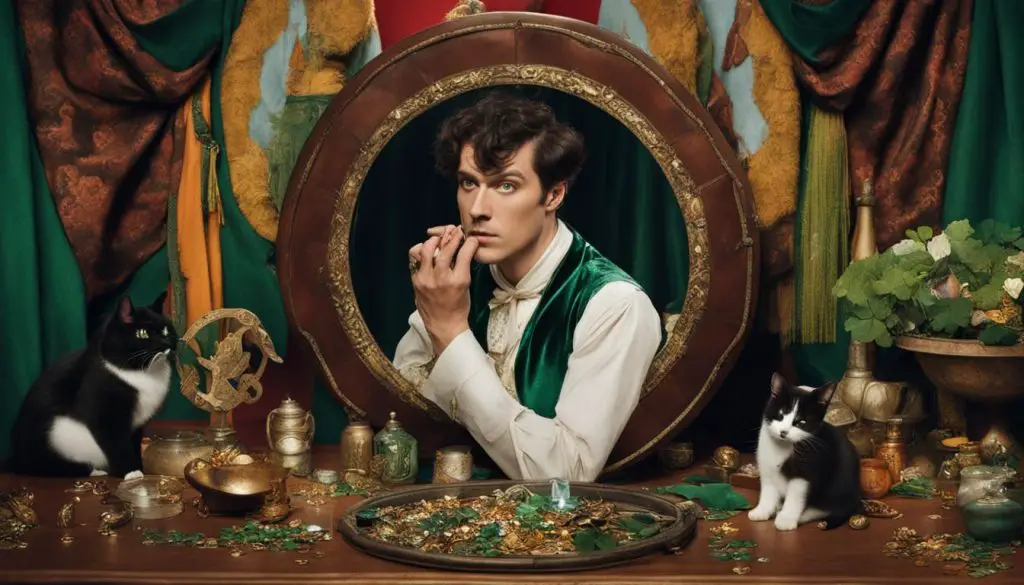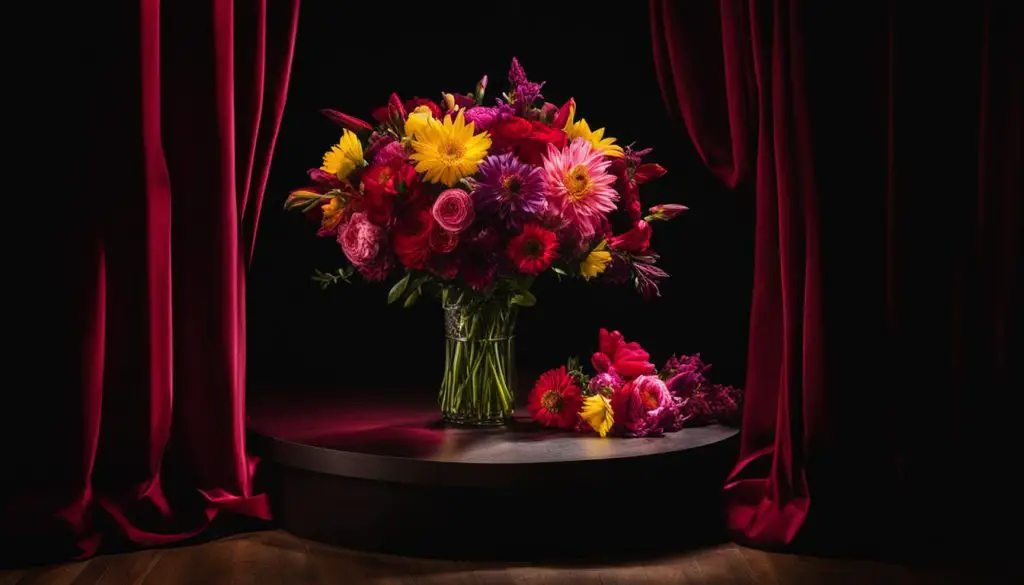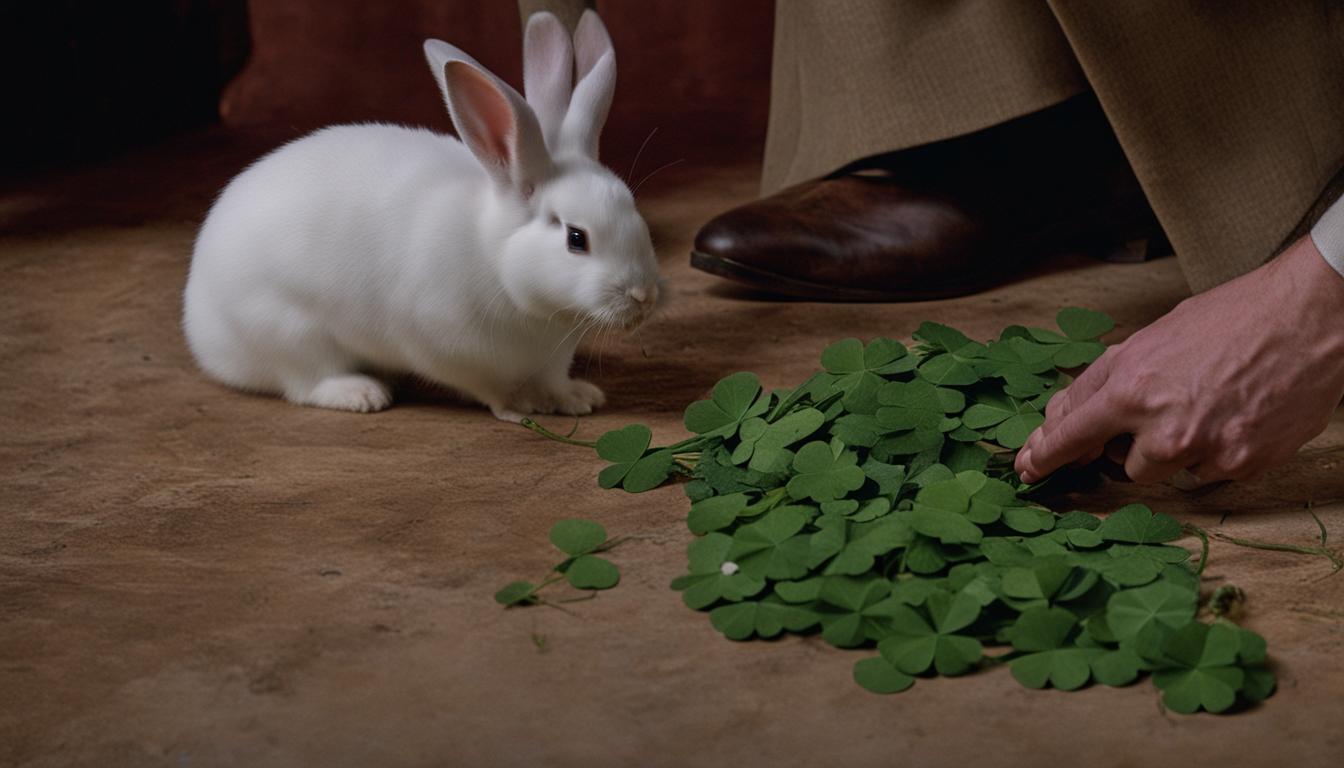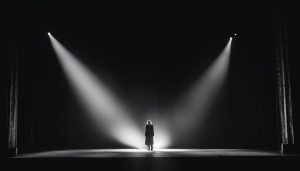When it comes to the world of theater, actors are known for their dedication to their craft and their belief in the power of superstitions. Many actors have rituals and beliefs surrounding good luck that they adhere to in order to ensure a successful performance. Let’s take a closer look at some of the most prevalent superstitions and rituals that actors follow.
Contents
- 1 The Scottish Play – The Curse of Macbeth
- 2 The Ghost Light – Warding Off Troublesome Spirits
- 3 The Rule of 3 – A Balance of Luck
- 4 Mirror, Mirror – The Curse of Broken Mirrors
- 5 Conclusion
- 6 FAQ
- 6.1 Are actors really superstitious about good luck?
- 6.2 What is the Scottish Play?
- 6.3 What is the purpose of the Ghost Light in theaters?
- 6.4 Why is having three lit candles onstage considered bad luck?
- 6.5 Why do people say “Break a leg” instead of “good luck” to actors?
- 6.6 What is the belief about broken mirrors in the theater?
- 6.7 Why is it considered unlucky to receive flowers before a theater performance?
- 6.8 What do these superstitions and beliefs add to the theater world?
- 7 Source Links
Key Takeaways:
- Actors in the theater world have a variety of superstitions and beliefs when it comes to good luck.
- Mentioning or quoting the play “Macbeth” is considered extremely unlucky and is commonly referred to as the Scottish Play.
- The Ghost Light, left on after all other lights are turned off, serves to prevent accidents and ward off troublesome spirits.
- In theater, having three lit candles onstage is considered bad luck.
- The phrase “Break a leg” is used to wish actors good luck, while saying “good luck” itself is believed to bring bad luck.
The Scottish Play – The Curse of Macbeth
Actors in the theater world are known for their superstitions, and one of the most notorious is the belief in the curse surrounding the play “Macbeth”. Mentioning or quoting the name of the play is considered extremely unlucky and can bring about a string of misfortunes in a production. This superstition has become so widespread that actors now refer to it as the Scottish Play to avoid invoking the curse.
The origins of this superstition can be traced back to various legends and accidents associated with different productions of “Macbeth” throughout history. It is believed that Shakespeare’s play contains elements of real and powerful witchcraft, leading to the notion that uttering its name brings about bad luck and supernatural forces that can cause harm to the performers and the production as a whole.
Despite its superstitious reputation, “Macbeth” is one of Shakespeare’s most frequently performed plays. Actors and directors take various precautions to avoid tempting fate, such as using alternative names like “The Scottish Play” or referring to the characters by their initials. If accidental mention does occur, a ritual of spitting over one’s shoulder or reciting lines from another Shakespearean play is often performed to counteract the curse.
| Macbeth Superstition | Belief |
|---|---|
| Mentioning or quoting the name of the play | Brings bad luck and misfortune |
| Using alternative names or initials for the play and characters | Avoids invoking the curse |
| Performing rituals like spitting over the shoulder or reciting lines from another Shakespearean play | Counteracts the curse |
“To speak the name ‘Macbeth’ inside a theater is believed to doom the production to catastrophe. Consequently, actors refer to it as ‘The Scottish Play’ or simply ‘MacB’, and never mention its name in the green room.”
This superstition surrounding “Macbeth” adds an air of mystery and intrigue to the world of theater. Whether it is mere coincidence or a result of centuries of theatrical lore, actors continue to adhere to this belief, ensuring that the curse of the Scottish Play remains a topic of conversation and caution within the performing arts community.
The Ghost Light – Warding Off Troublesome Spirits
In the world of theater superstitions, one ritual stands out as both practical and mystical – the Ghost Light. This single light, left on in the theater after all others have been turned off, serves a dual purpose. First, it helps prevent accidents by providing a dimly lit path for anyone who may need to navigate the stage during dark hours. Second, and perhaps more importantly, it is believed to ward off spirits that may cause trouble during performances.
The origin of the Ghost Light can be traced back to the days of gas-lit theaters. It was customary to leave one light, known as the “equity light,” burning overnight to prevent accidents in the dark. Over time, this practice took on a supernatural aspect, with actors and crew members attributing the light’s presence to the need for appeasing restless spirits.
According to theater superstition, the Ghost Light is an offering to the spirits that may dwell within the theater. By providing them with a source of light, it is believed that they will not interfere with the performances. Some even believe that the Ghost Light allows the spirits to perform their own plays when the theater is empty, satisfying their desire to be a part of the theatrical world.
“The Ghost Light is a symbol of respect for the unseen forces that inhabit the theater. It reminds us that there’s a certain magic that exists within these walls,” says veteran stage manager, Emily Thompson.
The Ghost Light remains a powerful symbol in the theater community, reminding actors and crew members of the rich history and traditions that surround their craft. Whether it truly wards off troublesome spirits or not, the Ghost Light serves as a tangible reminder that the world of theater is not just about the visible performances on stage, but also the mysterious forces that may reside in the shadows.
Table: Superstitions and Symbolism in Theater
| Superstition/Belief | Meaning/Significance |
|---|---|
| The Ghost Light | Warding off spirits and accidents |
| The Scottish Play | Bringing bad luck if mentioned or quoted |
| The Rule of 3 | Bringing bad luck if three lit candles are onstage |
| Break a Leg | Wishing good luck without saying “good luck” |
| Mirror, Mirror | Broken mirrors bringing misfortune confined to the theater |
| Flowers Before, Never After the Show | Receiving flowers before a performance can lead to bad luck |
The Rule of 3 – A Balance of Luck
The Rule of 3 is one of the most well-known theater superstitions, believed to bring bad luck when violated. According to this superstition, having three lit candles onstage is considered unlucky. This belief stems from the notion that the number three brings bad fortune to performers, despite its association with luck in other contexts.
While the origins of this superstition are unclear, it has become deeply ingrained in theater culture. Many actors and crew members adhere to the Rule of 3 as a precautionary measure to ward off any potential misfortune. The presence of more or fewer than three lit candles is believed to disrupt the delicate balance of luck, possibly leading to an unsuccessful performance.
Although the Rule of 3 may seem arbitrary to outsiders, it highlights the importance of tradition and ritual in the theater community. Just as actors rely on meticulously rehearsed lines and blocking, they also rely on these superstitious beliefs to create a sense of harmony and ensure a successful show.

“I always tell my fellow actors to ‘Break a leg’ before a show. It’s a strange phrase, but it’s something we all believe in. It’s like our secret language, our way of bringing good luck to each other.” – Actor
In addition to the phrase “Break a leg,” actors have other superstitions surrounding good luck. For example, it is considered bad luck to whistle backstage because it was once believed that whistling could mimic the sound of a falling sandbag, endangering the actors. Another superstition is the practice of carrying a small charm or token of good luck, such as a lucky coin or a piece of jewelry, to ward off any potential misfortune. These rituals may seem strange to outsiders, but they are deeply ingrained in the theater community and play a significant role in creating a sense of camaraderie and tradition among actors.
While actors rely on these superstitions and rituals to bring good luck, it is important to remember that success in the theater ultimately depends on talent, hard work, and dedication. Superstitions may provide a sense of comfort and confidence, but they cannot guarantee a flawless performance. Nonetheless, the theater world continues to embrace these traditions and superstitions, adding to the unique and enchanting nature of the performing arts.
Mirror, Mirror – The Curse of Broken Mirrors
One of the most intriguing superstitions in the world of theater revolves around mirrors. In many cultures, breaking a mirror is said to bring seven years of misfortune. However, in the realm of the performing arts, a broken mirror is believed to confine its curse to the theater itself, sparing individuals from the prolonged streak of bad luck.
This fascinating belief stems from the idea that a mirror holds the souls of those who look into it. When a mirror breaks, it is believed that the souls are released, and any misfortune that follows is contained within the boundaries of the theater. This superstition has led to the careful handling of mirrors in the theater world, with actors and crew members taking extra precautions to avoid accidentally shattering these reflective objects.
While the curse of broken mirrors may seem like a purely theatrical superstition, it highlights the deep-rooted beliefs and rituals that actors embrace in their craft. It serves as a reminder of the power of symbolism and the importance of maintaining a sense of mystique and tradition within the performing arts.
To illustrate the significance of this superstition, consider the following table:
| Broken Mirror Superstition | Interpretation |
|---|---|
| Avoiding mirrors backstage | Preventing accidental damage and the subsequent curse |
| Placing covered mirrors in dressing rooms | Protecting the souls of the actors from escaping |
| Performing rituals to ward off bad luck | Ensuring a successful production despite any mirror-related mishaps |
This table demonstrates how the broken mirror superstition translates into specific actions and practices within the theater community. It showcases the lengths to which actors and crew members go to preserve the integrity of their performances, even when faced with potential sources of ill fortune. The mirror, symbolizing reflection and self-perception, becomes an emblem of the theater’s ability to encompass and contain its own unique brand of superstition.

Opening Night Superstitions – Actors’ Perspectives
“Receiving flowers before a show is a big no-no for me. It’s not just about avoiding bad luck, but it’s also about staying focused and grounded. Opening night is already nerve-wracking, and I don’t want any distractions that may affect my performance.”
- Flowers create a sense of celebration and can distract actors from their pre-show preparations.
- Receiving flowers after the show allows actors to fully bask in the joy of their performance without any potential superstition-induced anxieties.
- Following theater traditions and superstitions is a way for actors to connect with the rich history and culture of the performing arts.
| Opening Night Superstitions – Flowers | Before the Show | After the Show |
|---|---|---|
| Good Luck | No | Yes |
| Bad Luck | Yes | No |
| Impact on Performance | Potentially negative | No impact |
Conclusion
Superstitions and beliefs about good luck are deeply ingrained in the theater world. Actors have a variety of rituals and traditions that they follow to ensure a successful performance and ward off any potential bad luck. These superstitions add to the mystique and charm of the performing arts, showing how deeply actors value the power of belief and ritual in their craft.
From avoiding mentioning the infamous “Scottish Play” to embracing the phrase “Break a leg,” actors understand the paradoxical nature of theater traditions. They know that speaking the words “good luck” can actually bring bad luck, and thus, they choose alternative phrases to wish each other well. The theater community also embraces the concept of the Rule of 3, considering three lit candles onstage to be a bad omen.
Within the theater, the Ghost Light stands as a symbol of protection against troublesome spirits. This single light left on after all others have been turned off not only prevents accidents but also wards off any mischievous entities that may cause trouble during performances.
Breaking mirrors is considered unfortunate in many superstitions, but in the theater, the belief is that any misfortune caused by a broken mirror is confined to the theater itself. Similarly, while it is customary for performers to receive flowers after a successful show, receiving flowers before the performance is believed to bring bad luck.
Overall, actors embrace these superstitions and rituals as they recognize the significance of belief and tradition in their craft. Whether it’s to ensure a successful performance or to create a sense of camaraderie within the theater community, these superstitions and beliefs in good luck continue to play a vital role in the world of theater.
FAQ
Are actors really superstitious about good luck?
Yes, many actors in the theater world have various superstitions and beliefs when it comes to good luck.
What is the Scottish Play?
The Scottish Play refers to the play “Macbeth,” which is believed to bring bad luck if mentioned or quoted, leading to a disastrous production.
What is the purpose of the Ghost Light in theaters?
The Ghost Light is a single light left on in the theater after all others have been turned off. Its purpose is to prevent accidents and ward off spirits that may cause trouble during performances.
Why is having three lit candles onstage considered bad luck?
The superstition stems from the belief that the number three brings bad fortune to performers, despite its association with luck in other contexts.
Why do people say “Break a leg” instead of “good luck” to actors?
It is believed that speaking the words “good luck” before a performance can actually bring bad luck. So, instead, actors are wished to “Break a leg,” which ironically means to have a successful performance.
What is the belief about broken mirrors in the theater?
Breaking a mirror is considered to bring seven years of misfortune in many superstitions. However, in the theater, if a mirror is broken, the misfortune is believed to be confined to the theater and not extend to individuals.
Why is it considered unlucky to receive flowers before a theater performance?
While it is common for performers to receive flowers after an opening night performance, it is believed to be unlucky to receive flowers before the show. This superstition suggests that receiving flowers beforehand can lead to a disastrous performance.
What do these superstitions and beliefs add to the theater world?
These superstitions add to the mystique and charm of the performing arts, showing how deeply actors value the power of belief and ritual in their craft.





